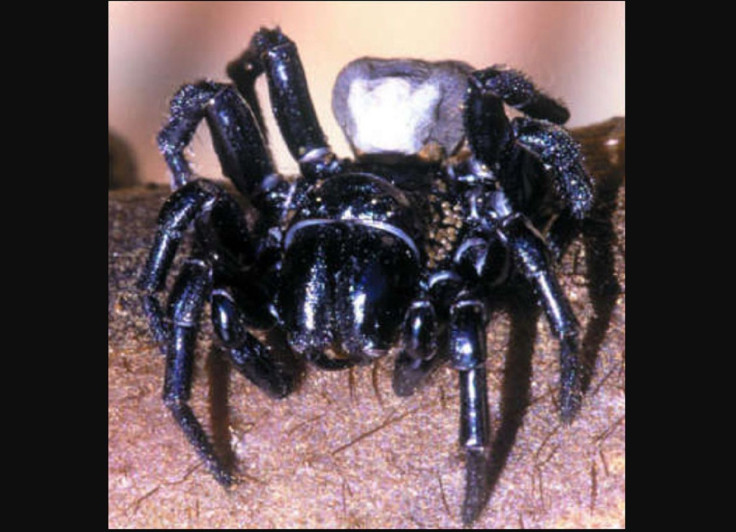Why Male Funnel-Web Spiders Are More Dangerous To Humans Than Females
KEY POINTS
- Funnel-web spiders are widely-known for having caused several human deaths
- Compared to the females, the males have significantly more potent venom
- Researchers: Males' deadliness to humans may just be an "unfortunate evolutionary coincidence"
Why is male funnel-web spider venom more dangerous to humans than the female's venom? A team of researchers found that their deadliness to humans may just be a coincidence.
Funnel-web spiders are some of the most infamous spiders in Australia. Although not all funnel-web spider species are considered to be dangerous, some are particularly notorious, such as the male Sydney funnel-web spider (Atrax robustus), which has caused serious bites and several human deaths.
In a new study, a team of researches set out to investigate the venom peptides that make funnel-web spider venom particularly dangerous. Called delta-hexatoxins, these toxins have been a mystery to scientists for years, particularly when it comes to why they are so dangerous to humans.
"It has puzzled scientists why these toxins are so deadly to humans, when they and other primates, haven't featured as either prey or predator during the spider's evolution," study lead Dr. Bryan Fry of the University of Queensland (UQ) said in the university news release. "And we couldn't understand why most human deaths were being caused by male funnel web spiders, which seemingly had much deadlier venom than females."
For the study, the team profiled the delta-hexatoxins from 10 funnel-web spider species, adding 22 to the nine that had been previously described, and also isolated delta-hexatoxins from the Sydney funnel-web spider. Dr. Fry notes in the news release that this not only added valuable data but it also helped them to have a "clearer picture" of their evolution.
The researchers propose that funnel-web spider venom was initially developed specifically for insects. But because males have to wander around to search for females once they are sexually mature, their environments became wider, leaving them more exposed to bigger and dangerous predators including vertebrates such as lizards and birds. Because of this, the females maintained their insect-specific venom while the males' venom evolved to be more vertebrate-specific.
"And, unluckily for us, we're a vertebrate species which copped it in the process," Dr. Fry said in the news release.
In other words, humans are not really the target of the male funnel-web spiders' venom but, the evolved version of their venom is, unfortunately, particularly potent to humans.
"Thus, the lethal potency of δ-HXTXs against humans is an unfortunate evolutionary coincidence," the researchers wrote in the study.
With no human fatalities from Sydney funnel-web spider bites being recorded since the antivenom was introduced in the 1980s, the researchers note that delving deeper into the spider venom could provide excellent opportunities, for instance in developing new treatments for bite victims or developing new insecticides.
The study is published in Proceedings of the National Academy of Science.

© Copyright IBTimes 2024. All rights reserved.






















